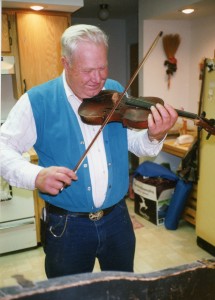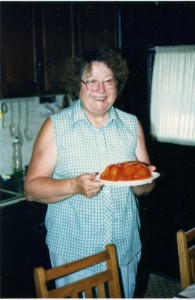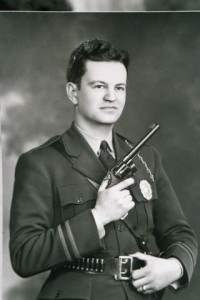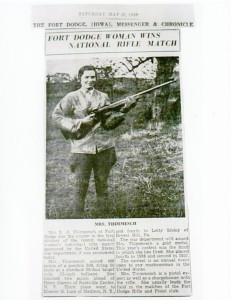#1160 – Peter Barus on politics; plus, an opportunity to view the entire 2016 Nobel Peace Prize Forum.
NOTE from Dick Bernard: Peter commented after last weeks post on Swiftboating Hillary Clinton. His always perceptive remarks are below. He writes from Vermont. His previous posts can be found here.
In addition, recently I received the link to all of the plenary session talks at the outstanding 2016 Nobel Peace Prize Forum in Minneapolis. The Forum was outstanding, and I was privileged to attend it. At minimum take a look. The Forum was especially great this year.
PETER BARUS:
In the political discourse effectiveness is measured against what we’re after in the first place. Are we seeking to support a candidate by defending their “narrative” (meaning, the carefully focus-grouped, workshopped and spin-doctored story saturating the corporate media channels)? That’s defending the story, not the candidate. Are we seeking to hold a candidate’s actions and words up to the light of proven fact? Usually we test for consistency of word and deed, and leave fact out of it. Are we hoping for some break in the timeworn, corrupt and entrenched “system” that might finally, for once in all of history, provide for an actual election that is actually free and fair? And results in the elevation of an incorruptible and honest leader? Well, we do almost universally profess to be in favor of exactly that.
The candidates know this terrain very, very well. Bernie Sanders (my Senator) knew from the start that he would fail to be nominated, much less elected: he knows how things are done in America. But it was a kind of reverse-Reagan action: he hoped to shift the center to make an election include values and voices that are always marginalized. Clinton is of course a master of the Way of Washington, and has achieved real and incontestable stature the old fashioned way: she is more “pragmatic” (ruthless and cunning) than all the other aspirants to the Oval Office dare to be. Saving only the Republican Nominee. As for that celebrated personality, his expertise is in fighting by his own rules: on his turf, with him as referee.
In a fight, the first thing is to choose the ground. The Republican did this years ago, and has owned it completely. We may think it is a stupid choice, an insane choice, an immoral choice; but it is the ground on which the candidate stands and hurls his challenges. And it is going to be very tricky for the Democrat to fight him on some other battlefield than the one where he is already fighting. Consider that to hold a debate, the venue will have to be TV, and that’s the ground the Republican has staked out. Clinton’s ground, of international relationships, deep personal understandings with and of world leaders in their political contexts, the management of continual wars around the globe, and the staunch backing of Wall Street – all that is already on TV, and out of her hands. Her ground is part of his ground. Welcome to my world. Said the spider to the fly.
The second thing in a fight is never box a boxer, or wrestle a wrestler. Somebody is going to have to fight a Reality TV host. On Reality TV. That’s two fundamental principles of warfare that he has, and she doesn’t, going in.
The real assets in this campaign are not the money, or the power-brokers, or the smoke-filled rooms. Not the people you insult, or those abandoned by the American Dream, or disparaged for loving Jesus, or too proud to take a government handout. No Minorities or Special Interests matter here. Nor the battle-scars of the top diplomatic office in the United States Government. And most certainly not your “gender”: Lucretia Borgia? Imelda Marcos? Maggie Thatcher for heaven’s sake? What’s sex got to do with it?
No, none of that. What really matters now is attention. Human attention, focused not on the candidate, but on that candidate’s pointing finger, moment by moment. What do they point at? Is it the moon? A reflection? Which candidate will garner the highest ratings while giving us the finger? We will hear all about the type of fake nails on hers, and the exceptional length and girth of his.
There is this funny thing about the human brain. What it perceives it also acts from. This happens before the intellect is engaged. All the intellect can do, after attention has been seized, is rationalize the accompanying behaviors. And there are two basic reactions to the Reality TV candidate’s performances: apathy or outrage. And both of these human responses stoke the fires of his campaign. Outrage for or against, it doesn’t matter at all, the campaign balloons. See, it’s not a “for or against” switch: it’s an On/Off switch. And the light goes on either way while we’re frantically fighting over who gets to flip the switch.
Meanwhile, one candidate trumpets ever more crazy bigotry and xenophobia, and outright lies about economics and his penis; and the other candidate, already trapped in the same discursive space with the opponent’s genital dimensions, sounds like a teacher from a junior high school civics class, going hoarse trying to yell above the noise of excited teenagers as the bell goes off. “DO. YOUR. HOMEWORK! THERE. WILL. BE. A. TEST!”
Whichever candidate’s chosen ground becomes the scene of the big showdown, the real issues will not get any airtime. Instead, one candidate will throw any reasonable discussion into chaos, and the other will flounder helplessly grasping at straws to regain some fraction of public attention. That fraction will hear defensiveness and righteous disdain. And that triumphant, derisive laughter. And the pundits will analyze each nuance of foreign policy, the cost of a wall on the Mexican border, and and whether Clinton killed Bin Laden to silence him about their relationship. But most of the viewers will have passed out by then, after the cathartic relief of seeing the Strict Father put the Nurturant Parent in her place.
Never mind that the former Secretary of State has conducted war after war in precisely that way, sowing chaos. With the Air Force, the Marines, the Army, the Navy, the FBI, the NSA, and the CIA, and organizations that fund aspiring dictators, like the International Republican Institute, and the National Democratic Institute. Pragmatic, utilitarian (non-partisan) tools of State. And her opponent has no experience whatsoever with actual invasions, airstrikes or drone-killings; he just uses metaphorical weapons, like the Big Lie, the verbal sucker-punch, the innuendo, the question-as-fact, the straw-man, the begged question, the categorical denial, the stonewall. And of course, mockery and derision. Tools of Reality TV.
It’s happening on TV. The President is elected on TV. We’re in the domain of attention, remember. In this campaign, a shooting war might get attention, except what’s new about a war? War is just background white-noise now, to most Americans. If it comes up at all it will be to blame the former Secretary for losing it. Whereas a good one-line chant like “lock ‘er up!” will cut to the bone.
But. There is hope. We are not just stimulus-response machines. Your attention please: it is your attention. You can direct it elsewhere. Your attention is yours alone to give. Don’t let them snatch it away. Make them work for it, at least. Take ownership of your attention. Talk with people who are like you, and not like you, face to face. Ask questions, and listen to the answers. We could, theoretically at least, elect a President in an election, and not Reality TV.
Then when those politicians point at something, you can tell whether that’s the moon they’re pointing at, or just the reflection in a mud-puddle.
COMMENTS:
from SAK, in England: Thanks Mr Bernard,
Mr Barus’ comments about choosing the ground for a fight brought to mind part of the reason the UK voted to leave the European Union. The nationalist far right politician Nigel Farage chose the ground to fight on, the same ground Mr Trump has chosen: immigration. The EU means free movement of EU citizens among the member states – it does not mean borders open to all & sundry as the poster Mr Farage hung on his bus seems to imply [hordes of apparent non-natives coming into somewhere]. Furthermore the UK is nowhere near “Breaking Point” as far as welcoming European citizens who wish to live and work there. It seems truth is the first casualty not only of war but of political campaigns as well.
POSTNOTE: Pertinent and timely: Today’s Just Above Sunset, “Under the Volcano“
SECOND POSTNOTE, a column in today’s Minneapolis Star Tribune, the headline says it all: Threats replace political dialogue at State Fair. The exact same example the writer uses in her article was used by some guy I had never seen before out in small town North Dakota in March, 2014, commenting on Hillary Clinton outside a building. At that time, 2 1/2 years ago, Hillary Clinton had not been a politician since being appointed Secretary of State in 2009, and when she was a politician, she was simply one of 535 members of the United States Congress. Hatred without benefit of fact is still easily transmitted. The guy who accosted the woman in the op ed would have been a good candidate for the ruffians who enabled the Third Reich in the early days.













